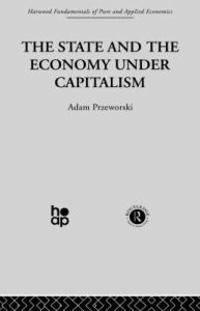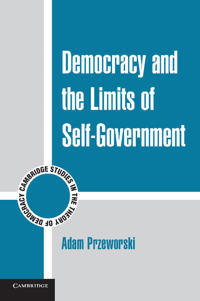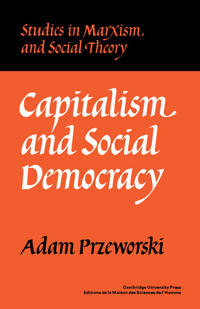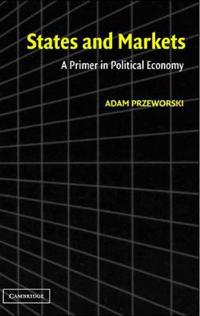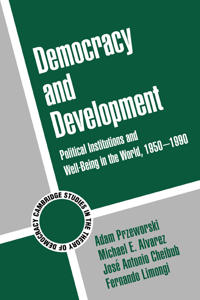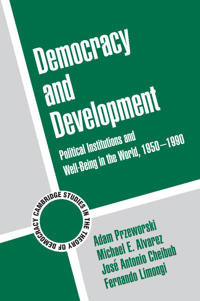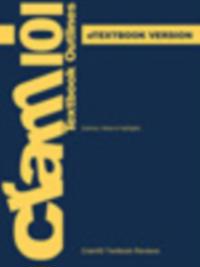The State and the Economy under Capitalism (Inbunden)
avAdam Przeworski
ISBN: 9780415269902 - UTGIVEN: 200112How valid is the Marxian theory of imperialism? This book traces the historical development of the theory of imperialism, the internationalisation of capital and theories of capitalist nation-state formation.[...]
Democracy and the Limits of Self-Government (Häftad)
avAdam Przeworski
ISBN: 9780521140119 - UTGIVEN: 201006The political institutions under which we live today evolved from a revolutionary idea that shook the world in the second part of the eighteenth century: that a people should govern itself. Yet if we judge contemporary democracies by the ideals of self-government, equality and liberty, we find that [...]
Capitalism and Social Democracy (Häftad)
avAdam Przeworski
ISBN: 9780521336567 - UTGIVEN: 198612This is a study of the choices faced by socialist movements as they developed within capitalist societies. Professor Przeworski examines the three principal choices confronted by socialism: whether to work through elections; whether to rely exclusively on the working class; and whether to try to ref[...]
States and Markets (Pocket)
avAdam Przeworski
ISBN: 9780521535243 - UTGIVEN: 2003-10Political economy is the study of decentralized and centralized mechanisms for allocating resources and distributing incomes: markets and states. Both markets and states can be organized and combined in a variety of ways and they jointly determine what the economy produces as well as who gets what. [...]
Democracy and Development (Inbunden)
avAdam Przeworski, M. Alvarez, Jose Antonio Cheibub
ISBN: 9780521790321 - UTGIVEN: 2000-08Is economic development conducive to political democracy? Does democracy foster or hinder material welfare? These two questions are examined by looking at the experience of 135 countries between 1950 and 1990. Descriptive information, statistical analyses, and historical narratives are interwoven to[...]
Democracy and Development (Häftad)
avAdam Przeworski, M. Alvarez, Jose Antonio Cheibub
ISBN: 9780521793797 - UTGIVEN: 200008Examines the impact of political regimes on economic development between 1950 and 1990.
e-Study Guide for: Democracy and the Limits of Self-Government by Adam Przeworski, ISBN 9780521761031
ISBN: 9781467218887 - UTGIVEN: 2012-01Never Highlight a Book Again! Just the FACTS101 study guides give the student the textbook outlines, highlights, practice quizzes and optional access to the full practice tests for their textbook.[...]

